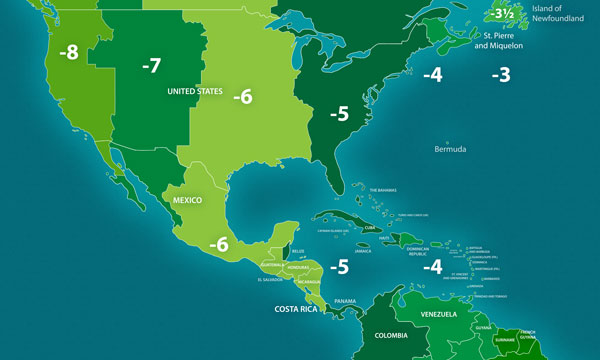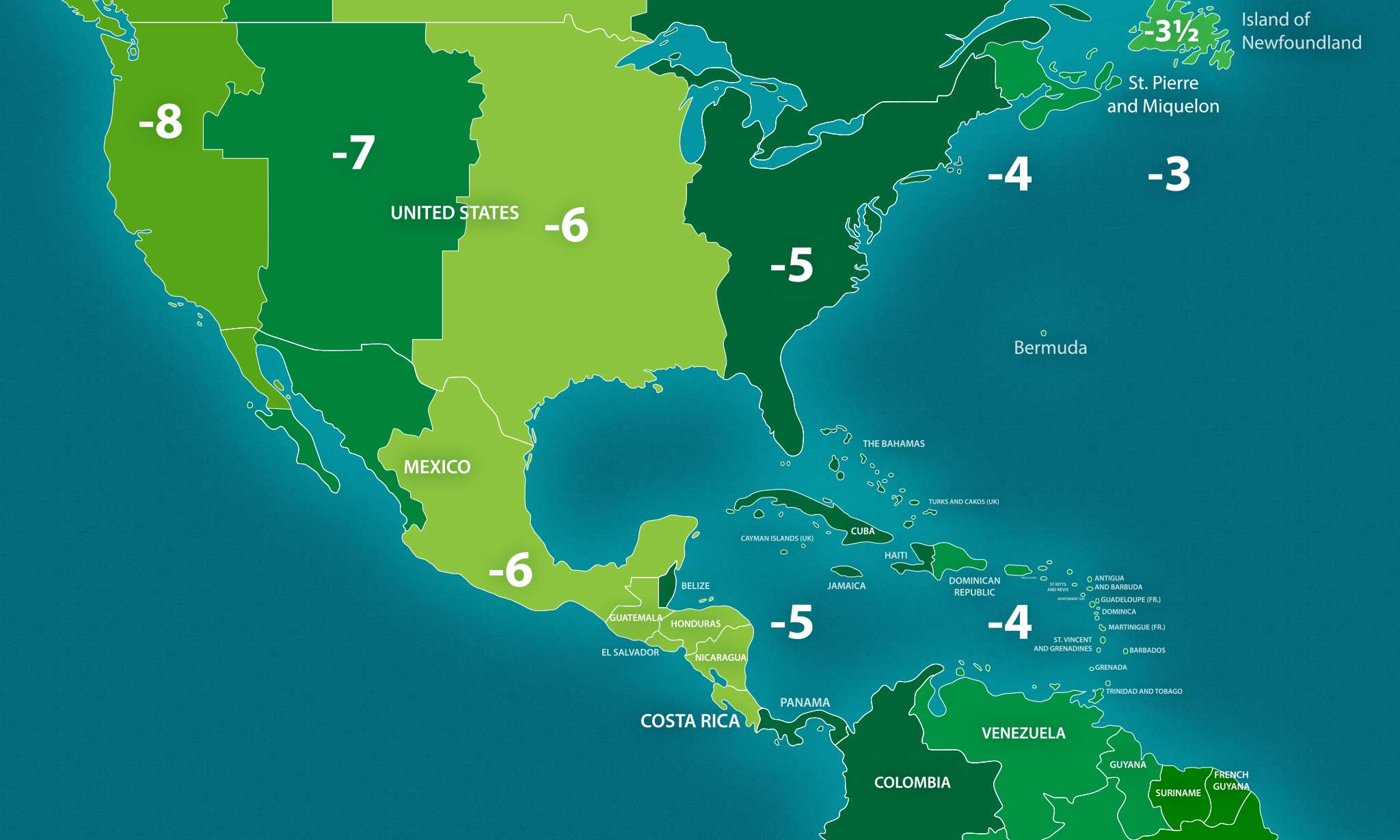LIVE, WORK AND EXPLORE
IN COSTA RICA
Benefits of the tourism offer:
- Costa Rica offers a wide variety of options in accommodations, cuisine, transportation and tour guides from professional agencies located throughout the country’s tourist regions, allowing them to serve tourists who come to any region of the country for prolonged stays.
- We are a destination that is characterized by peace, nature, sustainability, solidarity, hospitality and wellness, as well as a commitment to the environment and a diverse tourism offer with an excellent quality-value relationship.
- Costa Rica is a country that has everything it takes to provide visitors with unique, authentic experiences. It is a nation of quality, not mass tourism, with highly qualified tourism professionals who are ready to serve. Our goal is for tourists to feel like they’re real ticos as well.
- Long-term visitors can visit the country at any time of the year, with a variety of outdoor activities that are free from crowds, adopting a sustainable and secure approach that complies with the strict biosafety protocols implemented by all tourism subsectors.
Benefits of the destination:
- Costa Rica is a country with high degrees of connectivity, allowing digital nomads to keep in touch with their companies anywhere in the world.
- The country’s geographic location, climate, timezone, air connectivity and the tourism experience make Costa Rica an attractive destination for digital nomads.
- According to a study by InsureMyTrip, Costa Rica ranks in the top 10 digital nomad destinations worldwide.
Legal benefits:
- Digital nomads will not be considered to be normal residents for tax purposes, meaning that they will be exempt from complying with “formal and material duties” to the General Directorate of Taxation of the Costa Rican Ministry of Finance.
- Digital nomads will be able to use their driver’s license from their home country for the full duration of their stay in the country.
Foreign nationals may apply to the immigration sub-category of Stay (Estancia) for Remote Workers and Service Providers if they provide paid services remotely, irrespective of whether such services are subcontracted, using digital or telecommunication technologies or analogous means, to a natural person or legal entity located outside of Costa Rica, earning a minimum amount of three thousand U.S. dollars ($3,000.00) per month originating from outside of Costa Rica for the provision of such services, or a minimum of four thousand U.S. dollars ($4,000.00) per month originating from outside of Costa Rica for the provision of such services if they also wish to apply for their dependents to legally stay in the country. The above amounts will be determined in accordance with the official sale price set by the Central Bank of Costa Rica.
Foreign nationals and their dependents who meet the following requirements may legally stay in the country under the immigration sub-category of Stay (Estancia) for Remote Workers and Service Providers:
- Application form signed by the applicant or their representative. Check the Form, regulation and legal aid section on this page to download the relevant forms depending on whether the applicant will submit the form online through the Tramite Ya digital platform https://tramiteya.go.cr/dgme/ or in person using a physical form in the central or regional offices of the General Directorate of Immigration (DGEM).
- Receipt confirming payment to the Government in the amount of one hundred US dollars ($100.00) or the equivalent amount in Costa Rican colones at the reference exchange rate of the Central Bank of Costa Rica, in accordance with Article 256 of the General Law on Immigration and Aliens. This deposit must be made to account no. 242480-0 of the Banco de Costa Rica.
- A copy of the photo page of the foreign national’s valid passport, which contains their photograph and biographical information, as well as the page containing the Costa Rican entry stamp if the applicant is already in Costa Rica. The passport must always be provided for the documentation process.
- Consular or restricted visas as applicable to the group of countries set forth in the requirements under Executive Decree no. 36626-G, entitled “Regulation on granting entry visas to Costa Rica”, based on the applicant’s nationality in accordance with the provisions of the “General Guidelines on Visas for the Entry and Stay of Non-Residents”. The exceptions set forth in the above-mentioned guidelines will be considered when applying this rule.
- Bank statements accompanied by an affidavit declaring that the statements have been requested and obtained from the corresponding financial institution. These statements must provide evidence of income and indicate that the individual has received payment or remuneration during the previous year from outside Costa Rica in an amount of not less than three thousand US dollars ($3,000.00) per month at the official sale rate determined by the Central Bank of Costa Rica, or four thousand US dollars ($4,000.00) if the applicant is requesting that their family group be granted permission to legally stay in Costa Rica. Alternately, the applicant may submit a certification of the above issued by a public accountant or notary public, if the procedure is completed in Costa Rica, or by the counterparts of such professionals abroad in accordance with the legislation of the respective country. This certification is the only component that must be accompanied by the respective consular legalization or apostille.
By law all documents issued in a foreign language must be accompanied by an official translation in Spanish. Applications for underage children or children with disabilities of any age must be signed by the parent completing the application or whose application in this sub-category has been approved, or the latter’s special representative. If the application is submitted by a representative, it must be accompanied by the respective power of attorney granted under the laws governing such legal acts.
For the purpose of complying with the provisions of Item 70 of the General Law on Immigration and Aliens and safeguarding national security, and in compliance with the provisions in Item 11 bis of Law 10008, the issuance of visas in this category is subject to a security review by DGME of the criminal and police records via the national and international databases to which it has access. Likewise, if it deems appropriate, DGME may carry out biometric revisions in order to safeguard national security.
Spouses or common-law partners, children under twenty-five years of age or children of any age with disabilities, and/or seniors who live with the person(s) who work or provide services remotely must submit the information requested in numbers 1-4 for this sub-category.
Check the Formularios según Trámite section on this page to download the relevant forms depending on whether the applicant will submit the form online through the Tramite Ya digital platform https://tramiteya.go.cr/dgme/ or in person using a physical form in the central or regional offices of the General Directorate of Immigration (DGEM).
In addition to the above, familial connections must be proven using one of the following requirements, as applicable, which must be issued by the corresponding authorities of the country of origin:
- Marriage certificate issued in the last six months.
- A document that clearly represents a declaration or recognition of the civil union, issued in the last six months by the competent authority.
- A copy of the birth certificate of minor children or unmarried children up to the age of 25.
- If the dependent is a person with disabilities, a medical opinion that identifies the condition.
- Accompanying seniors must demonstrate the existence of a familial link or cohabitation with the person applying under this special Estancia category by means of an affidavit to that effect.
- Foreign nationals applying under the sub-category of Stay (Estancia) for Remote Workers and Service Providers and their dependents, whether applying digitally or in person, must complete the registration process on the digital platform, granting their informed consent within the scope of Article 5 of Law 10008, and meet the requirements listed above, as applicable.
- If the applicant intends to submit a physical, in-person application, they must make an appointment through the DGME’s Web Appointments Portal using the option of Stay (Estancia) for Digital Nomads.
- If the application is made in person, the applicant must appear at the Service Platform of the Foreign Nationals Administration (Plataforma de Servicios de la Gestión de Extranjería) with all of the necessary requirements for opening their file. This Platform is located in the central DGME offices in La Uruca, or in the regional offices that carry out the DGME’s administrative procedures.
- The Foreign Nationals Administration or the respective regional coordinating body will have a period of 15 calendar days from the date on which the application is submitted to issue a resolution in writing with respect to the application in this sub-category.
- No more than 5 calendar days after receiving the application, the office processing the file will issue a single written notice, in which it lists the requirements left out of the application, or requests that the user provide clarifying or supplementary information. The applicant will have 8 working days to complete or clarify their application.
- Once the applicant submits all requirements, the remainder of the administration’s 15-calendar day period to issue a definitive resolution will begin to elapse.
- If the requirements listed in the notice are not submitted within 8 working days, the application will be rejected through an administrative act in accordance with Law 6227, the General Law on Public Administration, and the file will be archived.
Once a notification has been sent regarding the resolution granting the ability to remain legally in Costa Rica under the immigration sub-category of Stay (Estancia) for Remote Workers and Service Providers, issued by the Foreign Nationals Administration of the DGME, the foreign national and/or their dependent(s) will have a period of three months to process their immigration accreditation document. If the individual does not compete the process within this time period, procedures will be initiated with the aim of cancelling the immigration status granted.
For documentation, the foreign national must request an appointment by calling the Immigration Call Center at 1311 or the Bank of Costa Rica at 800-227-2482.
On the day of the appointment, the foreign national must provide:
- A receipt confirming payment to the Government in the amount indicated in the approval resolution, in accordance with Article 215 of the General Law on Immigration and Aliens.
- A receipt confirming payment to the Government in the amount of ninety US dollars ($90.00), corresponding to the request for legal stay documents, as well as the issuance of the document that certifies the legal stay and the fees corresponding to the Special Social Immigration Fund.
- Receipt for a single payment as a guarantee deposit for non-residents, Stay (Estancia) sub-category, according to the amount set forth in the Regulation on the Guarantee Deposit Fund of the General Law on Immigration and Aliens, in accordance with Executive Decree 36539-G
- Passport of the foreign national that is valid and in good repair. The passport used to initiate the passport must be provided as a proof of identity. If the passport is expired, it must be provided along with the valid travel document.
- Medical services policy that covers the applicant and their dependents for the full period of the authorized legal stay.
- The policy must cover the full period of the legal stay authorized by DGME for this category.
- It must include coverage guarantees for medical expenses in the event of illnesses in Costa Rica of at least fifty thousand US dollars ($50,000.00) and its period of validity must cover the duration of the stay in the country. The medical services policy may be offered by one of the insurance companies authorized by the Office of the Superintendent General of Insurance of Costa Rica and duly registered with that authority. Alternately, applicants may obtain an international insurance policy with the above-mentioned coverage.
- In the event of family groups, each family member must have a medical services policy that follows the above points.
For renewals under this immigration category, the foreign national must demonstrate that they have been present in the territory of Costa Rica for a minimum period of 80 days in accordance with Article 15 of the Law.
Renewal is subject to the following requirements, in accordance with Article 10 of the Regulation, Renewal of the Stay (Estancia) Sub-category:
- Application form signed by the applicant or their representative. The applicant must enter the Tramite Ya digital platform, available at the URL https://tramiteya.go.cr/dgme/ or any other such digital platform that DGME may, in the future, make available to users.
- Bank statements accompanied by an affidavit declaring that the statements have been requested and obtained from the corresponding financial institution. These statements must provide evidence of income and indicate that the individual has received payment or remuneration during the previous year from outside Costa Rica in an amount not less than three thousand US dollars ($3,000.00) per month at the official sale rate determined by the Central Bank of Costa Rica, or four thousand US dollars ($4,000.00) if the applicant is requesting that their family group be granted permission to legally stay in Costa Rica. Alternately, the applicant may submit a certification of the above issued by a public accountant or notary public, if the procedure is completed in Costa Rica, or by the counterparts of such professionals abroad in accordance with the legislation of the respective country. This certification is the only component that must be accompanied by the respective consular legalization or apostille.
- A receipt confirming payment to the Government in the amount indicated in the approval resolution, in accordance with Article 215 of the General Law on Immigration and Aliens.
- A receipt confirming payment to the Government in the amount of ninety US dollars ($90.00), corresponding to the request for legal stay documents, as well as the issuance of the document that certifies the legal stay and the fees corresponding to the Special Social Immigration Fund.
- Passport of the foreign national that is valid and in good repair. The passport used to initiate the passport must be provided as a proof of identity. If the passport is expired, it must be provided along with the valid travel document.
- Medical services policy that covers the applicant and their dependents for the full period of the authorized legal stay.
- The regulation states that all of the required documents in the application have to be translated into Spanish. Who is able to provide such a translation?
To be on the safe side, applicants can have the translation completed by an official translator registered with the Costa Rican Ministry of Foreign Affairs, or a notary public with knowledge of the language.
Documents can also be translated abroad, but the official sources consulted note that working with a Costa Rican translator is more practical, as this can prevent errors or problems with translations done in applicants’ home countries, which generally slow down the process.
- Where do digital nomads have to make the $100 deposit (receipt of payment to the Government) required to enter the country?
The USD $100 must be deposited in the account no. 242480-0 in Banco de Costa Rica, which belongs to the Republic of Costa Rica. This is the account generally used for payments to enter the country.
The payment receipt may be attached to the form that must be completed on the Trámite Ya platform, or a printed copy may be taken to authorized Immigration offices.
- How does the medical services insurance work for digital nomads?
The medical services insurance must cover the full duration of the digital nomad’s stay in Costa Rica for the full period authorized, and must have a coverage of at least USD $50,000.
The policy may be from an international provider or a Costa Rican insurance firm regulated by the Office of the Superintendent General for Insurance of Costa Rica. Any dependents accompanying the digital nomad to Costa Rica must also be covered by an insurance policy.
- What requirements does a digital nomad need to meet to open a bank account with a Costa Rican financial institution?
Digital nomads may open savings accounts in financial institutions belonging to the national banking system provided that they comply with the provisions of the Law on Narcotics, Psychotropic Substances, Unauthorized Drugs, Connected Activities, Money Laundering and Terrorism Financing (8.204).
They must also comply with all regulatory frameworks relating to the fight against money laundering. The Office of the Superintendent General of Financial Institutions (SUGEF) will issue any regulations or guidelines that prove necessary.
- Do I need legal assitance to apply?
No, no legal assitance is required.
Notice
* By law all documents issued in a foreign language must be accompanied by an official translation in Spanish. *
* By clicking below you will be leaving visitcostarica.com and redirected to other sites *
* By law all documents issued in a foreign language must be accompanied by an official translation in Spanish. *

TIME ZONE
Your Costa Rica Dream is So Close
Costa Rica’s natural wonders and welcoming locals can make this your year to remember. Click the map to see how Costa Rica matches up with your time zone to make your work days as productive as possible.









